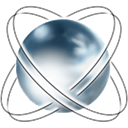Top Windows 7 Alternatives: Modernizing Your Operating System
Windows 7, the successor to Windows Vista, introduced a compelling combination of welcome innovations and much-needed polish. Built on the Vista codebase, it offered features like Windows XP Mode and robust system imaging capabilities. However, with its end-of-life, many users are seeking a reliable and secure Windows 7 alternative. This guide explores the best operating systems to upgrade your computing experience.
Top Windows 7 Alternatives
Moving on from Windows 7 doesn't mean sacrificing functionality or familiarity. Here are some of the top operating systems that offer excellent replacements, catering to various user needs from open-source flexibility to familiar commercial environments.

Ubuntu
Ubuntu is a Debian Linux-based open-source operating system for desktop computers, making it a powerful and free Windows 7 alternative. It's highly customizable and features regular OTA updates, a robust APT package manager, and strong security & privacy features. Ubuntu runs on Linux, Windows, and Windows S, offering wide compatibility for those looking to transition.

Linux Mint
Linux Mint is one of the most popular desktop Linux distributions, known for its modern, elegant, and user-friendly interface that feels very Windows-like, making it an excellent Windows 7 alternative. It's free and open-source, based on Ubuntu and Debian, and comes with features like out-of-the-box functionality, a built-in file manager, and support for Nvidia drivers, ensuring a smooth transition for many users.

Debian
Debian is a free and open-source operating system developed by a community of individuals, offering exceptional stability and flexibility. As a base for many other Linux distributions, it's a solid Windows 7 alternative for those who value control and performance. It features a powerful package manager, low memory usage, and robust security & privacy, running on Windows, Linux, Windows S, and BSD.

Windows 10
Windows 10 is Microsoft's direct successor and a natural commercial Windows 7 alternative. It maintains a familiar interface while introducing new features like OneDrive integration, tablet support, and Xbox Streaming. While it requires a purchase, its widespread adoption and continued support make it a secure and compatible choice for many existing Windows users.

Arch Linux
Arch Linux is an independently developed, free, and open-source GNU/Linux distribution targeted at competent Linux users. It's a customizable and lightweight rolling release system, making it an ideal Windows 7 alternative for those who prefer a minimalistic and bleeding-edge environment. Its Arch User Repository (AUR) and comprehensive wiki documentation are significant advantages for experienced users.

Manjaro Linux
Manjaro Linux is a user-friendly Linux distribution based on Arch, offering the benefits of Arch's rolling release model with greater ease of use. As a free and open-source Windows 7 alternative, it provides out-of-the-box functionality, strong community support, and robust stability. Manjaro is customizable and lightweight, with good support for Nvidia drivers, making it an accessible option for those new to Arch-based systems.

Fedora
The Fedora Project is an openly-developed, free, and open-source Linux distribution sponsored by Red Hat. It's known for incorporating the latest open-source technologies, making it a cutting-edge Windows 7 alternative. Fedora features an in-built GUI, separated workspaces, and multiple language support, providing a robust and secure operating system for a wide range of users.

ReactOS
ReactOS is a free and open-source effort to develop an operating system compatible with applications and drivers written for Microsoft Windows NT, including many Windows XP features. Its lightweight nature and focus on Windows XP compatibility make it an interesting Windows 7 alternative for users seeking a familiar environment without the commercial licensing. It runs on Windows and FreeDOS, and features a community-based development model and an NT kernel.

elementary OS
elementary OS is a free, fast, and aesthetically pleasing open-source operating system based on Ubuntu, offering a sleek macOS-like user interface. It's an excellent Windows 7 alternative for users who prioritize design and a distraction-free environment. Features include Flatpak support, out-of-the-box functionality, and Debian package compatibility, making it both beautiful and practical.

macOS
macOS, developed and marketed by Apple Inc., is a Unix-based operating system designed for Macintosh computers. While it requires Apple hardware, it is a premium Windows 7 alternative for users seeking a highly integrated, privacy-focused, and robust computing experience. Features like Spotlight, Voice Commands, and a Unix-like foundation contribute to its reputation for stability and efficiency.
Choosing the best Windows 7 alternative depends on your specific needs, whether that's open-source flexibility, a familiar commercial environment, or a focus on privacy and aesthetics. Explore these options to find the perfect fit for your next computing experience.